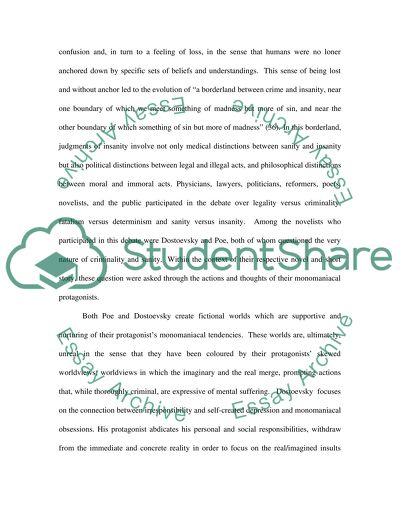Insanity and Criminality in Literature Book Report/Review. Retrieved from https://studentshare.org/miscellaneous/1532410-insanity-and-criminality-in-literature
Insanity and Criminality in Literature Book Report/Review. https://studentshare.org/miscellaneous/1532410-insanity-and-criminality-in-literature.


